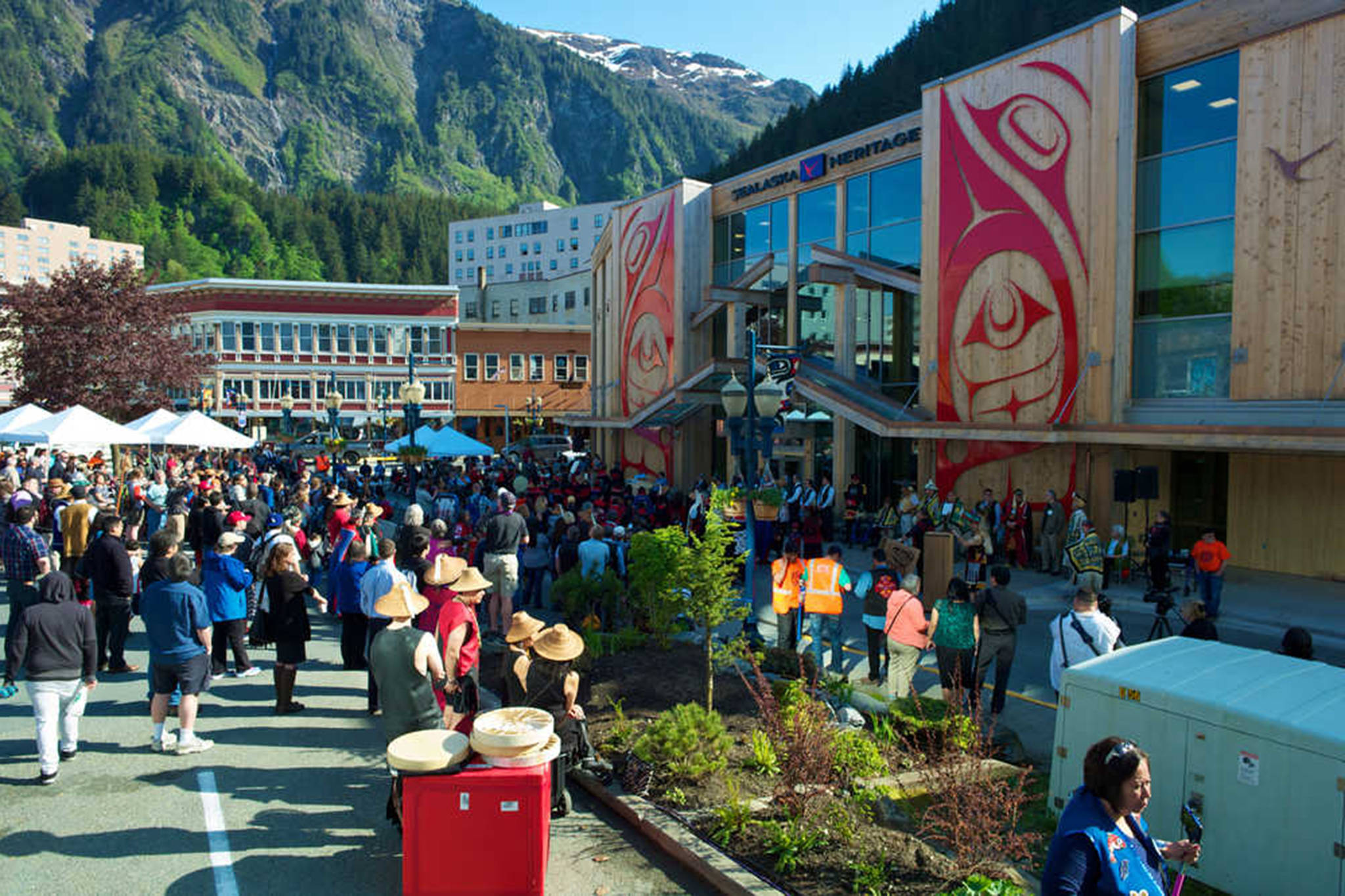A Juneau-based Alaska Native nonprofit directly and indirectly contributed $10 million into the Alaskan economy last year.
McDowell Group found Sealaska Heritage Institute generated $10.4 million for the state through its employees, paying contractors, securing grants, attracting visitors and more.
The bulk of that money, $9.2 million, was spent in the City and Borough of Juneau, the study found.
[SHI clan house turns into concert hall]
SHI’s determined the financial impact was larger than the nonprofit’s 2018 revenue of $8.16 million, which means every dollar SHI took in turned into more than a dollar for the state and for Juneau last year, per the study’s results.
As a point of comparison, $9.2 million would be about a third of what the CBJ budgeted for capital improvement projects or half of the bond debt service budget in the$335 million CBJ budget adopted in June 2018.
“It was astonishing to see how high the numbers actually are,” said SHI President Rosita Worl in a release. “It’s very gratifying to know that we contribute this much to the economy of Juneau and the state.”
The study was an attempt to quantify what growth in revenue, programs offered and community support noticed by SHI staff means for Juneau and Alaska, said SHI Chief of Operations Lee Kadinger, and the results came in about a week ago.
It was also a follow-up to a 2012 study that determined SHI’s every-other-year Celebration has a $2 million economic impact.
According to the new study: SHI supported 85 employees who earned almost $4 million, generated about $170,000 in sales and bed taxes in 2018, 200 Juneau businesses and individuals benefited from SHI purchases and contracts, and $800,000 was paid to 60 Juneau-based contractors mostly through SHI grant programs.
The state employs 4,097 people, the federal government 639, Juneau School District 672, CBJ 582 and Bartlett Regional Hospital 402, according to the community profile included in the CBJ’s most recent budget.
Through SHI, $750,000 was provided to the Juneau School District and the University of Alaska Southeast for additional teachers and staff, teacher education and arts programs. Sealaska scholarships totaling $120,000 were awarded to 59 Juneau students with $70,000 spent on education at UAS.
“When you look at some of the educational gains you’re seeing in the community, you can’t help but say the impact from an economic standpoint is tying into a school improvement,” Kadinger said.
[Family shares Soboleff memories]
While the financial impact figures impressed Kadinger, he said he was particularly struck by the gains made since the Walter Soboleff Building was built in 2013 and 2014.
“As we started going through it, what was more interesting to me was to see since the construction of the Walter Soboleff Building our programmatic growth explode over the last four or five years,” Kadinger said. “I knew our impact has been growing. To see that stark difference of constructing the building, and then this blossom of programmatic growth and blossom of employees, staff and contractors, I think that was more impactful to me.”
He said that change was exemplified by an SHI revenue chart included in a summary of the study.
In 2009-2012, SHI revenue sat around $3 million. In 2013 and 2014, while the building was being constructed, grant money for the project pushed annual revenue to $9.26 million and $13.77 million.
After the Walter Soboleff Building opened in 2015, revenue settled at a new normal that roughly doubled pre-building figures. In 2015 revenue was $6.36 million. Three consecutive years of year-over-year gains later, revenue was at $8.16 million for 2018.
[Alaska Native language speakers gather in Juneau]
Kadinger said it would be apt to look at the building as “a good investment.”
“I think what this shows is it clearly has a significant impact on Juneau, when you look at it just economically speaking, it’s had a significant impact,” Kadinger said.
The number of people impacted by SHI also stood out to Kadinger.
“The goal of a nonprofit is to better a community and invest in the community,” Kadinger said. “Whether it’s Baby Raven Reads for the little kids or the adult programming that we do or Celebration, it’s making Juneau a better place to live.”
• Contact arts and culture reporter Ben Hohenstatt at (907)523-2243 or bhohenstatt@juneauempire.com. Follow him on Twitter @BenHohenstatt.

